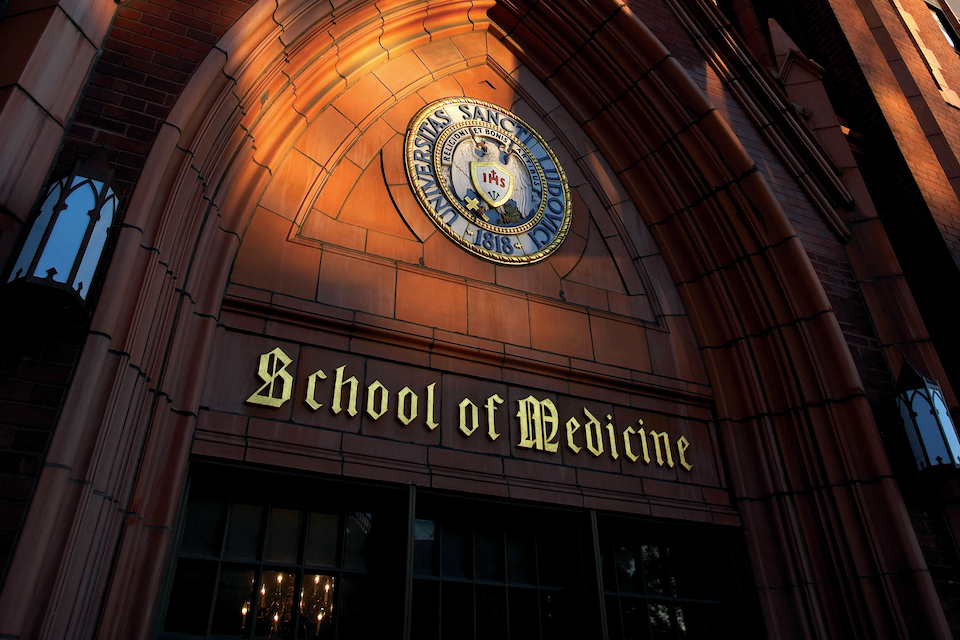Majority of Missouri Voters Want to Say Goodbye to Switching Their Clocks
The SLU/YouGov Poll Finds Missouri Voters prefer Daylight Saving Time over Standard Time
Spring forward? Fall back? Most Missourians say it’s time to stop changing clocks twice a year.
Missourians will “spring forward” with the start of Daylight Saving Time this weekend.

The SLU/YouGov poll found that a vast majority of Missouri voters prefer a consistent time throughout the year. Photo by Sarah Conroy.
In February 2024, the SLU/YouGov Poll asked 900 likely Missouri voters their preferences on Daylight Saving Time. The poll found that a vast majority of Missouri voters prefer a consistent time throughout the year. Forty-seven percent of voters say they would prefer to see Daylight Saving Time all year round, compared to 31% indicating they would prefer Standard Time all year round. Meanwhile, only 16% of Missouri voters say their preference is to continue to switch back and forth between the two as most of the United States does now.
Most of the United States observes Standard Time from the first Sunday in November until the second Sunday in March. Daylight Saving Time is observed in the other half of the year when our clocks move forward one hour. During Daylight Saving Time, the sun sets an hour later than during Standard Time, creating more daylight in the evening but less in the morning.
“Stopping changing our clocks twice a year has overwhelming bi-partisan support,” said Steven Rogers, Ph.D., SLU/YouGov Poll Director and associate professor of political science at Saint Louis University. “At least 74% of each Democratic, Republican, and independent voters prefer to end the practice springing forward or falling back.”
The SLU/YouGov Poll found the most support to follow Daylight Savings Time permanently, particularly in the southern regions of the state where half of voters say they prefer Daylight Saving Time year-round.
Poll results and cross tabs available here.
Impacts of Daylight Savings Time
Studies show that Daylight Saving Time lowers energy bills, increases safety, stimulates the economy and promotes more active lifestyles. On the other hand, Daylight Saving Time is associated with increased health risks from cardiac disease and cognitive disorders. During Standard Time, the timing of the sunrise and sunset allow people to sleep better at night and feel more alert during the day because the time and body clocks are more aligned.
History of Daylight Savings Time
Moving clocks an hour forward in the spring and gaining an extra hour of evening light was first practiced in the United States during the World Wars to save energy, then called “War Time.” After World War II, some cities continued observing War Time while others switched back. The lack of consistency prompted The Uniform Time Act of 1966, which mandated that clocks changed twice annually between Standard Time and Daylight Saving Time. States either adopted the system or opted out entirely.
Since 2007, Americans’ clocks have fallen back in November and spring forward in March.
All states except Arizona and Hawaii currently participate in Daylight Saving Time.
Methodology and Funding
YouGov interviewed 900 likely Missouri voters between February 14 to February 26, 2024. The YouGov panel, a proprietary opt-in survey panel, is comprised of 3.1 million United States residents who have agreed to participate in YouGov Web surveys. Using their gender, age, race, and education, YouGov weighted the set of survey respondents to known characteristics of Missouri voters from the American Community Survey (ACS) public use microdata file, public voter file records, the 2020 Current Population Survey (CPS) Voting and Registration supplements, the 2020 National Election Pool (NEP) exit poll, and the 2020 CES surveys, including demographics and 2020 presidential vote. The margin of error for the weighted data is 3.74%.
The February 2024 SLU/YouGov Poll was funded by the PRiME Center in SLU’s School of Education.
About YouGov
Saint Louis University has partnered with YouGov to conduct its annual survey of Missouri voters. YouGov conducts surveys for multiple academic institutions and is the primary, trusted survey firm for media organizations, including CBS News and The Economist. An independent Pew Research Center study of online survey firms in 2016 further concluded that YouGov “consistently outperforms competitors.”
About Saint Louis University
Founded in 1818, Saint Louis University is one of the nation’s oldest and most prestigious Catholic institutions. Rooted in Jesuit values and its pioneering history as the first university west of the Mississippi River, SLU offers more than 15,200 students a rigorous, transformative education of the whole person. At the core of the University’s diverse community of scholars is SLU’s service-focused mission, which challenges and prepares students to make the world a better, more just place.
Latest Newslink
- SLU Research: Emergency Departments Should Avoid First-Generation Antihistamines in Elderly PatientsAfter studying the impact of first-generation antihistamines on elderly patients, Saint Louis University researchers are encouraging doctors to switch to the safer second-generation antihistamines.
- SLU's Museum of Contemporary Religious Art to Open Final Exhibition, Liminal, on March 1“Liminal,” the final exhibition at Saint Louis University's Museum of Contemporary Religious Art, will open on Sunday, March 1. “Liminal” will run through May 31.
- Hill Earns 2026 Excellence in Nursing Finalist NominationShellie Hill, D.N.P., associate professor of nursing in the Trudy Busch Valentine School of Nursing, has been nominated for a St. Louis Magazine 2026 Excellence in Nursing Award. Hill is one of three nominees for the top educator award.
- Three SLU Students Advance to Semifinalist Stage for Fulbright GrantsSaint Louis University's Office of Competitive Fellowships and Scholarships has announced that three SLU students have been selected as semifinalists for the prestigious Fulbright U.S. Student Program. The semifinalists are Bridget Guerin, Lily McMorrow and Claire Pistono.
- SLU to Co-Host the 2026 Summit for Water Exploring Water in One HealthSaint Louis University's WATER Institute, the National Great Rivers Research and Education Center, and the St. Louis Aquarium Foundation are co-hosting the 2026 SLU Summit for Water: Water in One Health: The Environmental, Animal, and Human Health Nexus.
- Creative Excellence: SLU Staffers Win Design and Photography AccoladesSaint Louis University designers and photographers from Marketing and Communications and Enrollment Management earned several awards for their creative work in 2025.













